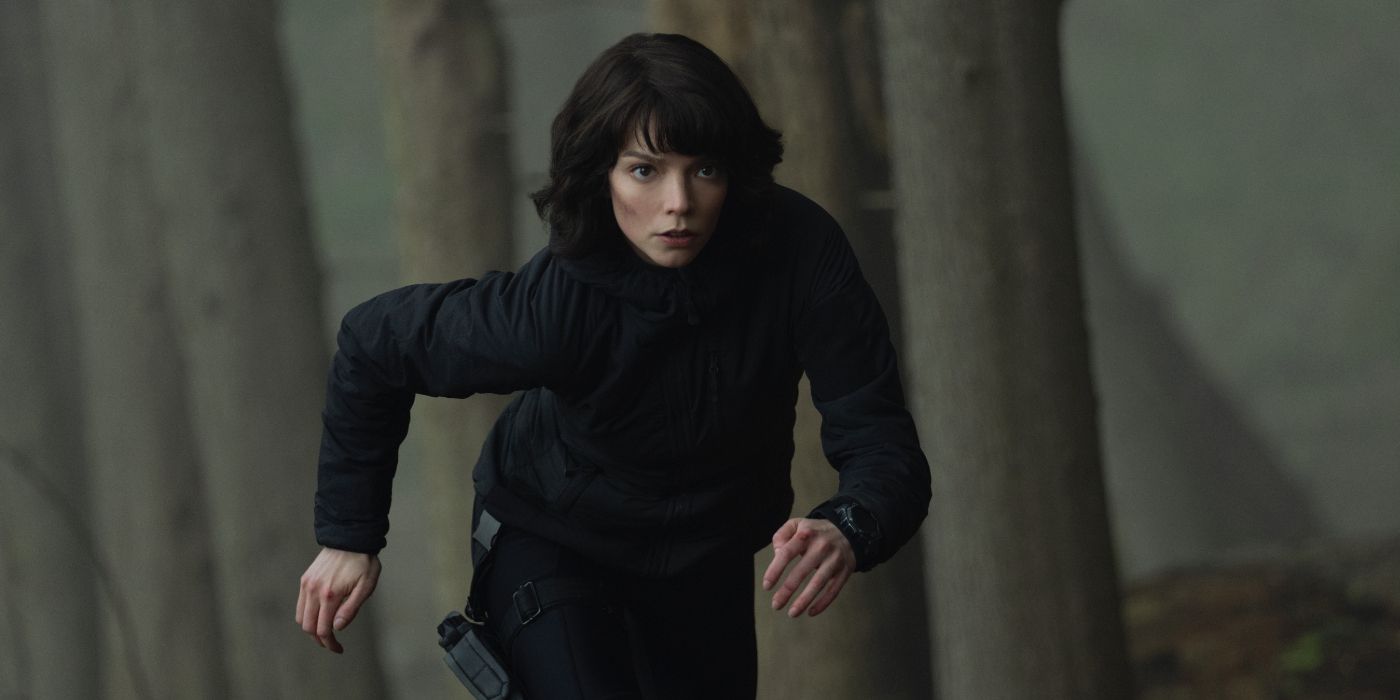In a year packed with sequels and franchise juggernauts, The Gorge (2025) emerges as a bold, emotionally charged standalone film that fuses action, romance, and sci-fi with surprising heart. Directed by Scott Derrickson, best known for Doctor Strange and The Black Phone, this genre-defying thriller pairs intensity with intimacy, anchored by powerful performances from Anya Taylor-Joy and Miles Teller.
Set in a surreal near-future, The Gorge challenges expectations by turning a military sci-fi setup into a deeply personal exploration of trauma, love, and redemption—showing that even in the most violent environments, human connection can bloom.
In a remote, heavily militarized zone referred to only as "The Gorge," two elite soldiers—Drasa (Anya Taylor-Joy) and Levi (Miles Teller)—are assigned to opposite watchtowers. Their mission is to guard the perimeter against unidentified threats rumored to rise from the abyss. Is it an alien incursion, a black ops experiment gone wrong, or something more spiritual? The film plays with all of these possibilities, keeping its central mystery vague but ominous.
Communication between Levi and Drasa is initially forbidden. But over months of isolation and silent surveillance, they find creative ways to reach across the void: coded notes, Morse code light flashes, music sent through static frequencies. Slowly, they forge a bond stronger than their orders—a connection born of loneliness, curiosity, and the hope of something more.
As the threat from the gorge begins to escalate—creatures begin to emerge, and the region’s command center collapses into chaos—the two are forced to make a choice: stay loyal to a system that no longer protects them, or leap into the unknown together.
Anya Taylor-Joy brings a perfect mix of fragility and fierceness to Drasa. Her portrayal of a hardened soldier masking deep emotional scars is nuanced and gripping. Taylor-Joy is no stranger to roles that demand emotional complexity (The Queen’s Gambit, Last Night in Soho), and here she thrives in a character who says little but feels everything.
Miles Teller, as Levi, complements her well with a raw, grounded performance. He plays a man trying to outrun his past—a former rogue operative seeking redemption in duty. His chemistry with Taylor-Joy is quiet but electric, built not on dramatic monologues but shared silence and meaningful glances.Together, they make The Gorge feel far more intimate than its high-concept premise suggests.
Scott Derrickson’s direction is restrained but effective. Known for blending horror with existential weight, he brings that same sensibility here. The camera often lingers on desolate landscapes, fog-shrouded cliffs, and long stretches of silence, emphasizing the loneliness of the two characters.
The cinematography captures a stark contrast between the concrete brutality of the watchtowers and the dreamlike, shifting skies above the gorge. It's a film of textures—rusted metal, ash-gray clouds, glistening tears. The gorge itself is never fully revealed, only hinted at through sound and shadow, enhancing the sense of looming dread.
The film’s minimal yet haunting score adds to the tension, with subtle use of strings and industrial ambiance to mirror the characters’ inner unraveling. At its heart, The Gorge is about what happens when two broken people meet at the edge of the world—and try to climb back together.

Levi and Drasa are both haunted by guilt and past violence. The gorge becomes a metaphor for everything they've buried: shame, regret, and fear of intimacy. In choosing to communicate, they begin to heal. In choosing to leap—literally and metaphorically—they reclaim their agency.
The film explores how isolation can either erode or reveal the soul, and how love, even in brief moments, can transform a life.There's also a subtle critique of military systems that dehumanize those they rely on, and a philosophical thread about whether monsters come from outside—or within.

The Gorge may not be for everyone. Its slow pace, ambiguous lore, and minimalist storytelling might leave some viewers wanting more clarity or spectacle. But for those willing to invest, it’s an atmospheric, emotional experience that lingers long after the credits roll.
This is not your typical action-romance. It’s something riskier—more meditative than explosive, more poetic than preachy. It’s a film that invites introspection while still delivering moments of heart-pounding tension. In a cinematic landscape crowded with repetition, The Gorge dares to feel something different.





-1751101411-q80.webp)